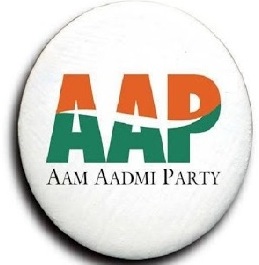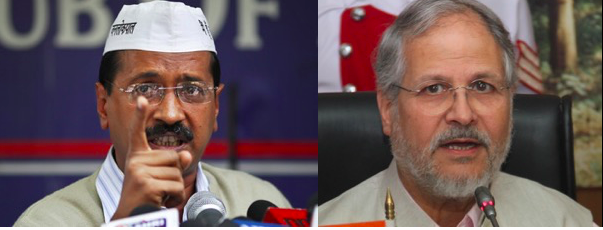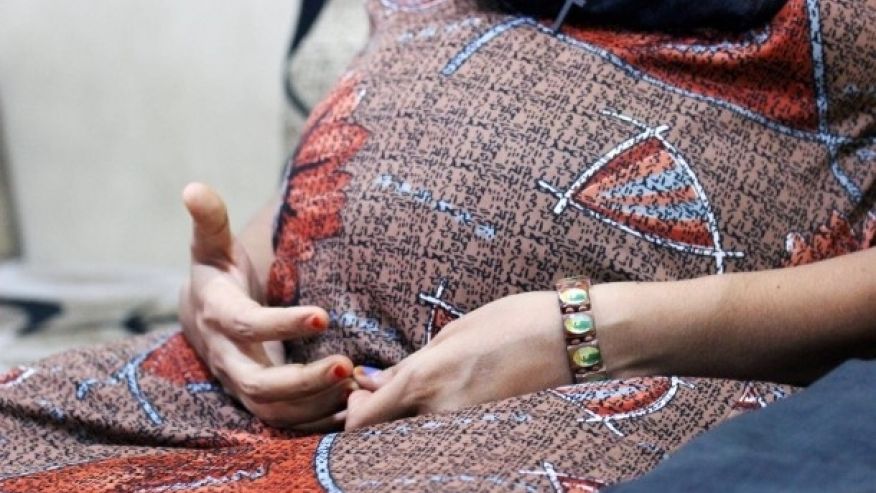
 The AAP government on Thursday moved the Delhi high court challenging the Union home ministry’s May 21 notification that lieutenant-governor Najeeb Jung has discretionary powers for appointments and transfers to key bureaucratic posts in the nation’s capital. Delhi chief minister Arvind Kejriwal is likely to seek political support for his stand by writing letters to the chief ministers of West Bengal, Uttar Pradesh and Bihar, among others. Even Delhi Assembly Speaker Ram Niwas Goel is in the process of writing to President Pranab Mukherjee urging that the city government be accorded more powers in line with the bill moved by then home minister L.K. Advani in Parliament in 2003.
The AAP government on Thursday moved the Delhi high court challenging the Union home ministry’s May 21 notification that lieutenant-governor Najeeb Jung has discretionary powers for appointments and transfers to key bureaucratic posts in the nation’s capital. Delhi chief minister Arvind Kejriwal is likely to seek political support for his stand by writing letters to the chief ministers of West Bengal, Uttar Pradesh and Bihar, among others. Even Delhi Assembly Speaker Ram Niwas Goel is in the process of writing to President Pranab Mukherjee urging that the city government be accorded more powers in line with the bill moved by then home minister L.K. Advani in Parliament in 2003.
The Supreme Court also agreed to hear on Friday a special leave petition by the Union home ministry against the May 25 Delhi high court order describing as “suspect” its notification on the transfer of officers, and holding that Delhi’s lieutenant-governor could not act in his discretion.
Following the tiff, lieutenant-governor Najeeb Jung on Thursday met Union home secretary L.C. Goyal and had a telephonic conversation with home minister Rajnath Singh. Mr Jung reached the home ministry early Thursday morning and had a 20-minute meeting with Mr Goyal. It is understood that the lieutenant-governor discussed the resolution passed by the Delhi Assembly on Wednesday and the government’s stand in the Supreme Court on the special leave petition. The L-G is said to have briefed the home secretary on the transfers and postings by the AAP government which he claims are in violation of the rules.
A Supreme Court vacation bench of Justices A.K. Sikri and U.U. Lalit has posted the petition for hearing Friday after a “mention” was made by additional solicitor-general Maninder Singh on its urgency, seeking an early listing. The MHA’s May 21 notification prohibited the Delhi government’s Anti-Corruption Branch (ACB) from acting against Central officials in criminal cases. It had said that the ACB could not take cognisance of offences against officials, employees and functionaries of Central services, that includes the Delhi police. It also gave the lieutenant-governor absolute powers on the transfer and posting of senior officers.
In the Delhi high court, the city government mentioned the matter before a division bench of Justices B.D. Ahmed and Sanjeev Sachdeva. The bench also then posted it for hearing on Friday. The Delhi government has sought the quashing of the MHA notification on the grounds that it is not constitutionally valid.
A similar plea filed by law student Vibhor Anand that had challenged the MHA notification and contended that the appointment of bureaucrat Shakuntala Gamlin as acting chief secretary by the lieutenant-governor was “illegal” was also posted for Friday. Mr Anand’s petition said: “Delhi is neither a full state nor a Union territory and (is) governed by Articles 239-AA and 239-AB of the Constitution of India (which deals with Union territories) introduced by a constitutional amendment in 1991.”
It said: “As per Section 41 of the GNCT Act 1991, the Lieutenant-Governor does not have any discretion to appoint Gamlin as chief secretary and other such posts, nor any special law granted him this discretion.”
The faceoff between chief minister Arvind Kejriwal and lieutenant-governor Najeeb Jung took place over the control of key bureaucratic appointments.
The high court, while commenting on this notification, had noted that the lieutenant-governor was bound to act on the aid and advice of the council of ministers directly elected by citizens of Delhi, and that the Centre’s “executive fiat” siding with him was “suspect”. It observed that the people’s mandate “must” be respected by the lieutenant-governor as there was no other “constitutional or legal fetter”.
The ASG submitted before the Supreme Court bench that the observations by the high court led to total uncertainty and made everyday administration difficult in Delhi. He said there was a need for a clear interpretation of Article 239-AA of the Constitution.
When the Supreme Court bench noted the high court had only used the word “suspect”, the ASG said a clarification was needed. He said the high court’s observations and findings had come while dealing with the bail application of the policeman who was arrested by the ACB.
The Delhi government, meanwhile, filed a caveat to make sure that the bench did not pass any ex-parte orders on the MHA’s prevent the Bench from passing ex- parte order in the MHA’s petition without giving it a hearing. In its petition, the MHA faulted the high court for passing an order without giving an opportunity to the Centre to make its submissions.
The petition questioned the proprietary of the high court in commenting against the May 21 notification although the arguments had been concluded on the bail plea on May 20. It noted there was no occasion for the high court to pass remarks against the notification when it was neither on record nor was it even argued. Further, the petition said the order had also been reserved a day before the notification came into existence.
The MHA contended that the HC had made sweeping observations against the May 21 notification without any hearing on this aspect. It raised a question whether the high court was required to examine the notification and its implications when the issue pending before it pertained only to a bail petition. Contending that the high court had unreasonably expanded the scope of the controversy and delved upon the notification even as the bail application was pending, the MHA prayed for quashing the impugned order and an interim stay of its operation.





Be the first to comment